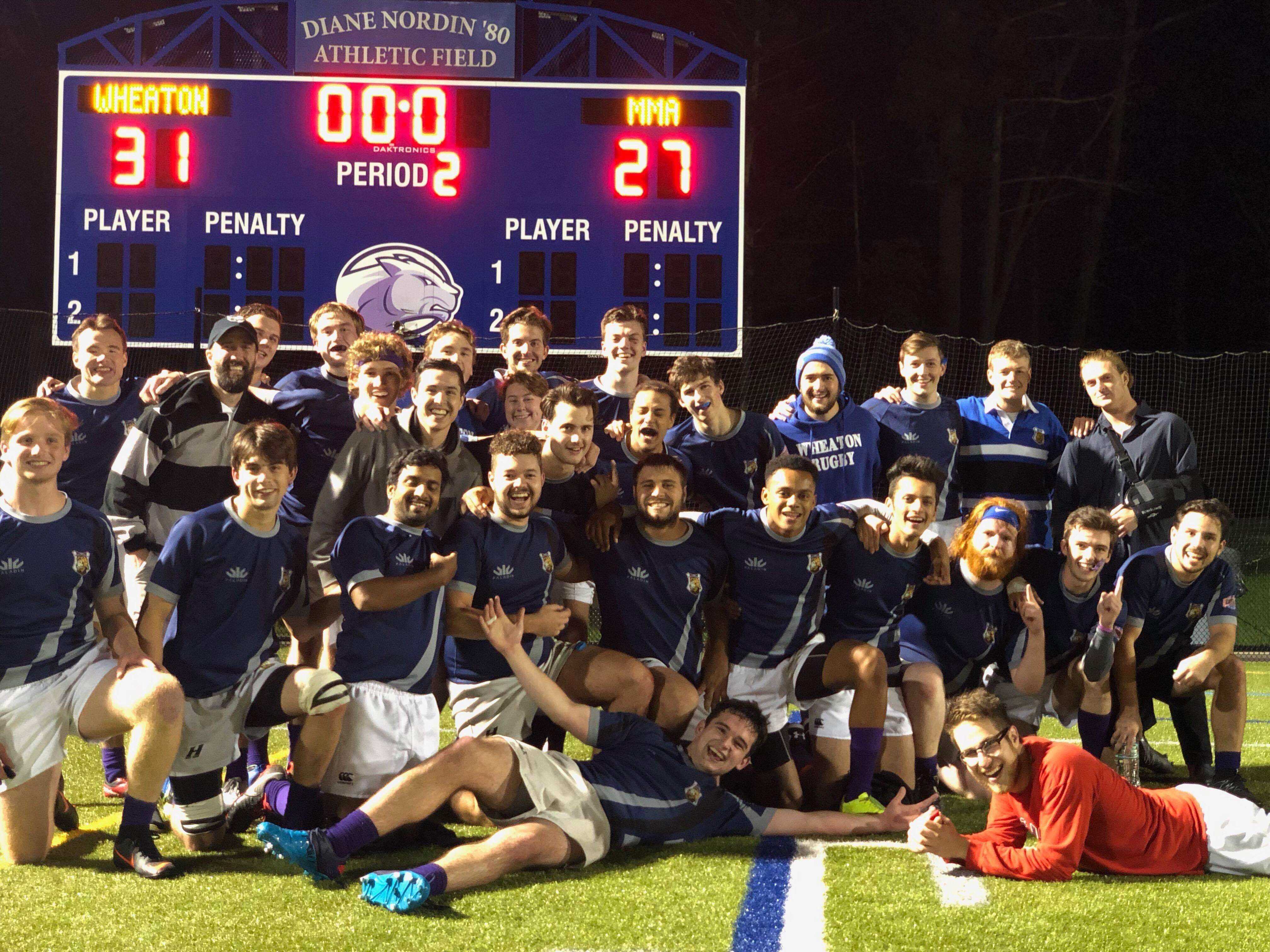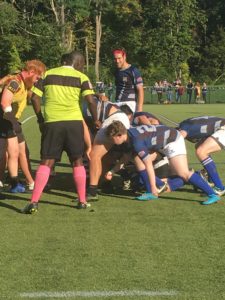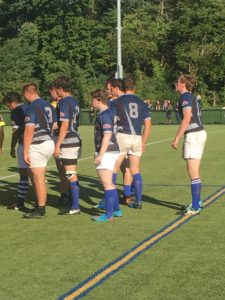Trans Rugby Player Cameron Adelman: We Need to Be the Change

We spoke with Cameron Adelman, a rugby player at Wheaton College, and Judy Allen, Wheaton’s Assistant Director of Campus Recreation, who helped Cameron get cleared by USA Rugby to compete on the men’s rugby team. On this process, Judy said, “With the advancements of the sport of rugby in the past few years, I am hopeful that this is the first step and that World Rugby Association and USA Rugby will be able to officially update the policy that they currently have and be able to provide more inclusiveness to the sport of rugby.”
This points to a continued need for World Rugby to adopt a trans-inclusive policy, as we called for in our 2017 open letter.
By Cameron Adelman
When I started Wheaton College in 2015, I knew I wanted to get back into sports. I played soccer for 7 years as a kid, but by the time I got to college, it had been 4 years since I’d been a part of any kind of team.
Wheaton has a club fair at the beginning of every fall semester for new students. Like most freshmen, I went with my friends from orientation, looking for the niches of campus where I could fit in. Some friends talked about joining the rugby team, and I was intrigued. I had never played a contact sport before, but had spent some time kickboxing in high school and I liked the idea of getting to combine the collaborative part of soccer with the physical intensity of kickboxing.
I decided to go to the first practice, and ended up joining the women’s rugby team. I didn’t know how trans-friendly Wheaton would turn out to be, or whether I would be welcome or safe on the men’s team. The women’s team was welcoming and I fell in love with the sport, but after a year of hearing “let’s go ladies” and talk of female camaraderie, I no longer felt comfortable and decided to leave the team.
A friend of mine from the men’s team had been asking me since sophomore year to join the men’s team, especially after I left the women’s team. I still wasn’t sure I would be welcome, especially because I hadn’t started medically transitioning yet, but after undergoing top surgery over winter break my junior year, I decided to give it a shot.
I joined the men’s rugby team early in the spring semester of my junior year and remembered why I fell in love with the sport. Most of the guys were welcoming from the beginning, but because everyone already knew I was transgender there was definitely an adjustment period. The longer I stuck with it, though, the more I just felt like one of the guys.

Midway through the spring semester, once we moved outside for practices again, I started to look into what the requirements for transgender players were under USA Rugby and whether I could play in any of our upcoming games. It was difficult to locate any information about it on the USA Rugby website, and it took an email to NSCRO (the division of USA Rugby Wheaton falls under) to even be given a copy of the policy. I clicked the link I was sent and found eligibility qualifications from 2001 that were nearly impossible to meet. I told my friend who originally persuaded me to join the team about it, and he said we needed to fight it.
I contacted Title IX at Wheaton, as well as the director of club sports. For the rest of the semester, we tried to figure out how to appeal the eligibility requirements and how we could convince USA Rugby to let me play. Ultimately, Judy Allen, the director of club sports at Wheaton, decided the best course of action would be to send in a Therapeutic Use Exemption form, as I was about to start testosterone (a prohibited substance under USA Rugby policy). Once the completed TUE and the necessary medical information were organized, the next battle was figuring out who we were supposed to send it to. Because the file contained confidential medical information, Judy didn’t want to just send it out without being sure it was going to the right person.
In June, we sent the paperwork off and hoped for the best. For months, we waited for an answer. I sent updated blood work, offered to send letters of support from my coach and my captains, and asked for any updates they could give me. Three months after sending in my exemption form, Judy got an email saying that USA Rugby hadn’t made a decision with how to proceed with the current policy, but had left the decision in the hands of Wheaton College, and ultimately Wheaton granted me the ability to play.
 On October 6th, 8 months after joining the men’s rugby team, I got to play in my first game. It was only for the last few minutes, but it was my first time out on the field with my teammates. USA Rugby has allowed me to play, but without a clear procedure or chain of command it was a difficult process that took months and numerous phone calls and emails. Short of adapting a more inclusive policy for transgender players, USA Rugby needs to outline the processes for eligibility appeals and the chain of command for these appeals, so players like me don’t have to wait in limbo for months, wondering if they will ever be able to play.
On October 6th, 8 months after joining the men’s rugby team, I got to play in my first game. It was only for the last few minutes, but it was my first time out on the field with my teammates. USA Rugby has allowed me to play, but without a clear procedure or chain of command it was a difficult process that took months and numerous phone calls and emails. Short of adapting a more inclusive policy for transgender players, USA Rugby needs to outline the processes for eligibility appeals and the chain of command for these appeals, so players like me don’t have to wait in limbo for months, wondering if they will ever be able to play.
Rugby is promoted as this sport that anyone, regardless of ability or body type, can play. The current policy for trans athletes undermines that mission, and it needs to change. Anyone, regardless of age, ability, body type, sexual orientation, gender identity, or anything else, can be a rugby player. I am one of the first transgender rugby players cleared by USA Rugby to compete on a team based on gender identity, but I won’t be the last. The fight is ongoing for inclusive policies for trans athletes under USA Rugby, but other transgender rugby players like me can’t wait for those policies to change—we need to be the change. I’m proud to be a trans rugby player, and I hope that my trans siblings across the country will be able to join their teammates on the pitch like I was able to. We just need to keep fighting.